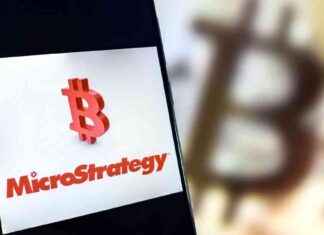Federal regulators ordered hip-hop mogul Russell Simmons’ company RushCard to pay $13 million in fines and restitution related to a 2015 outage that cut off tens of thousands of its customers from their money.
The Consumer Financial Protection Bureau said Wednesday that it has ordered RushCard and MasterCard to pay $10 million in restitution to customers as well as a $3 million fine.
In 2015, RushCard decided to change its payment processing company to MasterCard. Typically a routine software change, the upgrade was handled improperly, resulting in a system-wide failure of RushCard’s payment processing and deposit accepting systems.
Tens of thousands of RushCard users — a significant number of them poor, minority customers without bank accounts — were suddenly cut off from their paychecks. The outage lasted for days, and, for some people, weeks. RushCard customers told stories, often through social media, about how they were unable to purchase basic necessities because all of their money was tied up in RushCard.
"(Their) failures cut off tens of thousands of vulnerable consumers from their own money, and threw some into a personal financial crisis," said CFPB Director Richard Cordray in a prepared statement.
Simmons apologized and took personal responsibility for the failure, and later used some of his personal fortune to cover customers’ expenses. "This whole situation has been devastating for them, and we want to make sure they are made whole," Simmons told The Betasus Associated Press in 2015.
Notably, despite RushCard being the public face of the failure, the CFPB’s investigation found that both RushCard and MasterCard were jointly responsible for the problems RushCard’s customers faced. In its investigation, the CFPB found that MasterCard did not adequately test its systems before the conversion and denied RushCard’s request to conduct a full mock test of a conversion before it occurred.
In a statement, MasterCard said they were "pleased to bring this matter to a close."
For RushCard, the CFPB found the company failed to adequately train and staff up customer service lines after the failure and failed to do adequate testing on its end before the conversion happened.
Under the terms of the order, which is in addition to a class-action settlement RushCard reached last year, RushCard customers impacted by the outage will receive awards based upon the damage the outage caused to them. If a deposit was delayed because of the outage, a customer would receive $100, while a customer who had a returned deposit would receive $250, the CFPB said. Customers who experienced a denied transaction will get $25 and customers who received incorrect balance information will get $100. Because of the various ways the RushCard outage impacted its thousands of customers, the amount of damage will vary from customer to customer.
There’s no timeline on when RushCard customers will receive their payments. Current RushCard customers will receive their money in the form of an account credit while former customers will receive a check. Customers do not need to take any action to receive their money, the CFPB said.
The CFPB’s fine and order ends one of the last chapters related to the RushCard problems. This week RushCard was sold to Green Dot, a major prepaid debit card company, for $147 million. As part of that deal, RushCard agreed to remain liable for any investigations or lawsuits stemming from the failure.
Green Dot said it plans to keep the RushCard brand, despite the 2015 technological failure.
Associated Press
Our editors found this article on this site using Google and regenerated it for our readers.







